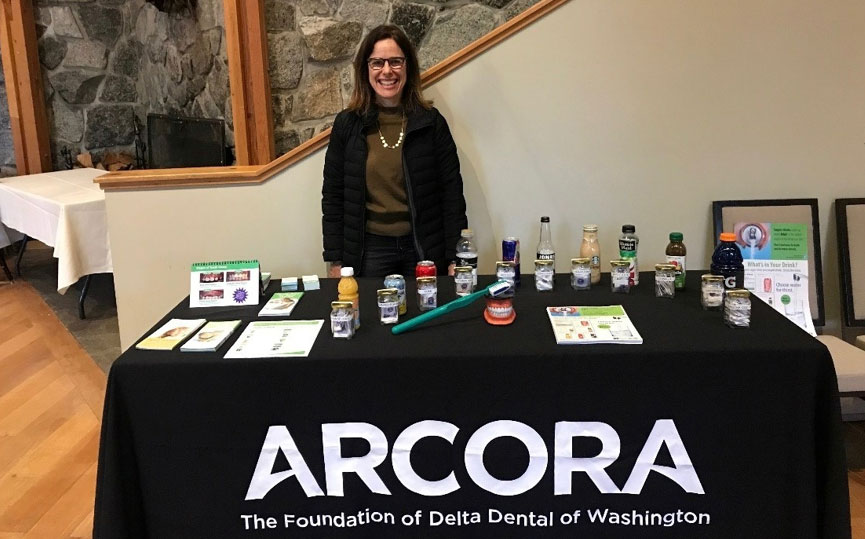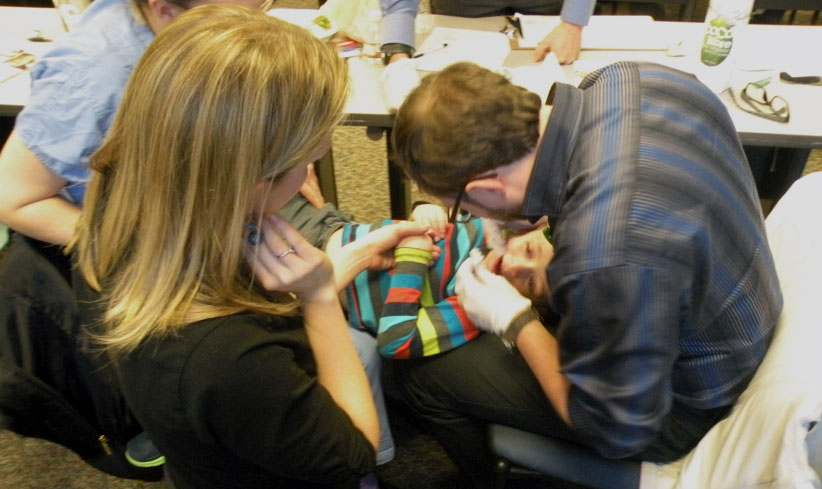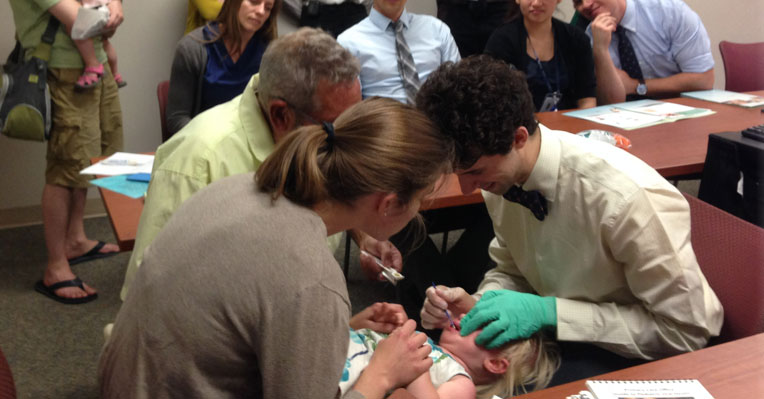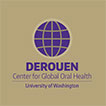I am proud to work with the Arcora Foundation, the foundation of Delta Dental of Washington. Our vision is that all people can enjoy good oral and overall health, with no one left behind. Through advocacy, programmatic work, and grant making, Arcora Foundation focuses on prevention and access in underserved communities where disparities are significant—specifically Black, Indigenous, and People of Color (BIPOC). We are a passionate, creative and committed team that cares deeply about the work we do and the communities we serve.

While our work is interesting (really, it is!), it doesn’t always lend itself to good cocktail party conversation. Typically, when I begin to talk about what I do, people’s eyes glaze over, they start asking about dental insurance, or they tell me they need to refresh their drink. Though others may not find oral health particularly glamorous, Arcora Foundation’s work improves, and sometimes saves, people’s lives.
My personal journey into dental public health began at the University of North Carolina, where I got my master’s in public health, focusing on health behavior and health education. In one of my first epidemiology lectures, the professor talked about one of the most effective public health interventions ever: community water fluoridation. I became motivated by the sad reality that not all people experience access to equitable health care and treatment. I believe that: 1) healthcare is a right – not a privilege; 2) our systems are flawed and need much help and attention; 3) behavior change is VERY difficult; and I could go on – but a major area of hope is in prevention!

Prevention saves money and improves people’s health. So preventive health has been my career (and personal) focus and passion. Following graduate school, I moved to Seattle where I began working in the Group Health Cooperatives’ Center for Health Promotion. I felt fortunate to land with this group who was doing amazing preventive-based work which included a robust smoking cessation program, cancer screening programs, patient education resource development and most notably planning for a future in healthcare with an electronic health record rather than paper charts. One project I worked on with the Center’s well-child committee, updating the well-child visit templates to prompt healthcare providers to address key prevention areas with their young patients. I have a confession here: Kaiser California shared their well-child templates with me, and Kaiser’s templates included questions about children’s oral health. Sadly, our pediatric committee decided that we shouldn’t include oral health questions on our template. The committee didn’t recognize the importance of oral and overall health since dental was not part of the Group Health system of care.
(But there is good news! Today, I am pleased to report that I work with this same medical system to help them with oral health integration, including training their residents.)

After my time at Group Health, I moved to the UW Child Health Institute, where I worked with medical teams across Washington to help them integrate best practices into the care they provided through quality improvement. From there, it was an easy transition to Arcora Foundation (Washington Dental Service Foundation at the time) to continue to support medical teams across WA but this time focusing on the integration of preventive based oral health services into well-child visits. This seemed like it might be a short-term project, but as we have come to learn, good oral health is key to good overall health, and many children (and adults) who have trouble accessing dental care in dental clinics can do so in a medical office. Turns out, this short-term project has been my passion for the last decade plus. At this point, I consider it my life’s work.
My work is challenging as medical teams have so much to address with patients, and oral health needs might not be as urgent as others during medical appointments. But I am happy to be part of national and local efforts to make oral health part of medical providers’ standards of care. I now consult with partners across the country who have similar programs. In 2014, the US Preventive Services Task Force made fluoride varnish a grade B recommendation, showing the evidence and importance of this work. I am training and coaching more medical education training programs – including residencies, ARNP and DO programs – every year. My future ambitions are to get further upstream by reaching students in all medical fields. In the meantime, I continue to support large and small medical teams across Washington to address the leading preventable chronic condition of childhood: oral disease. I feel so fortunate to get to work with amazing medical teams across the state who are doing such great work in caring for children and families. They all have so much work on their plates. I am always impressed and awed by their dedication and big hearts for the important work that they do.
In closing, I’d like to share Lisa Lee, MD, FAAP’s perspectives on delivering oral health services in medical settings. Dr. Lee is a partner of mine and an oral health champion.
Pediatricians take the time to listen to our patients and their caregivers, to meet our families’ needs and to engage them in preventative care. They trust us as we strive to create a safe environment of open communication and education. As pediatricians, we are instrumental in teaching our families how nutrition can affect both dental and health well-being and how proper brushing and using fluoride can keep our teeth healthy from an early onset. This education helps to reinforce the Dental Profession’s Optimal Oral Health message as we collaborate with them. Let’s continue to be champions for both the health and dental well-being of our patients!
Lisa Lee, MD, FAAP South Sound Pediatrics
